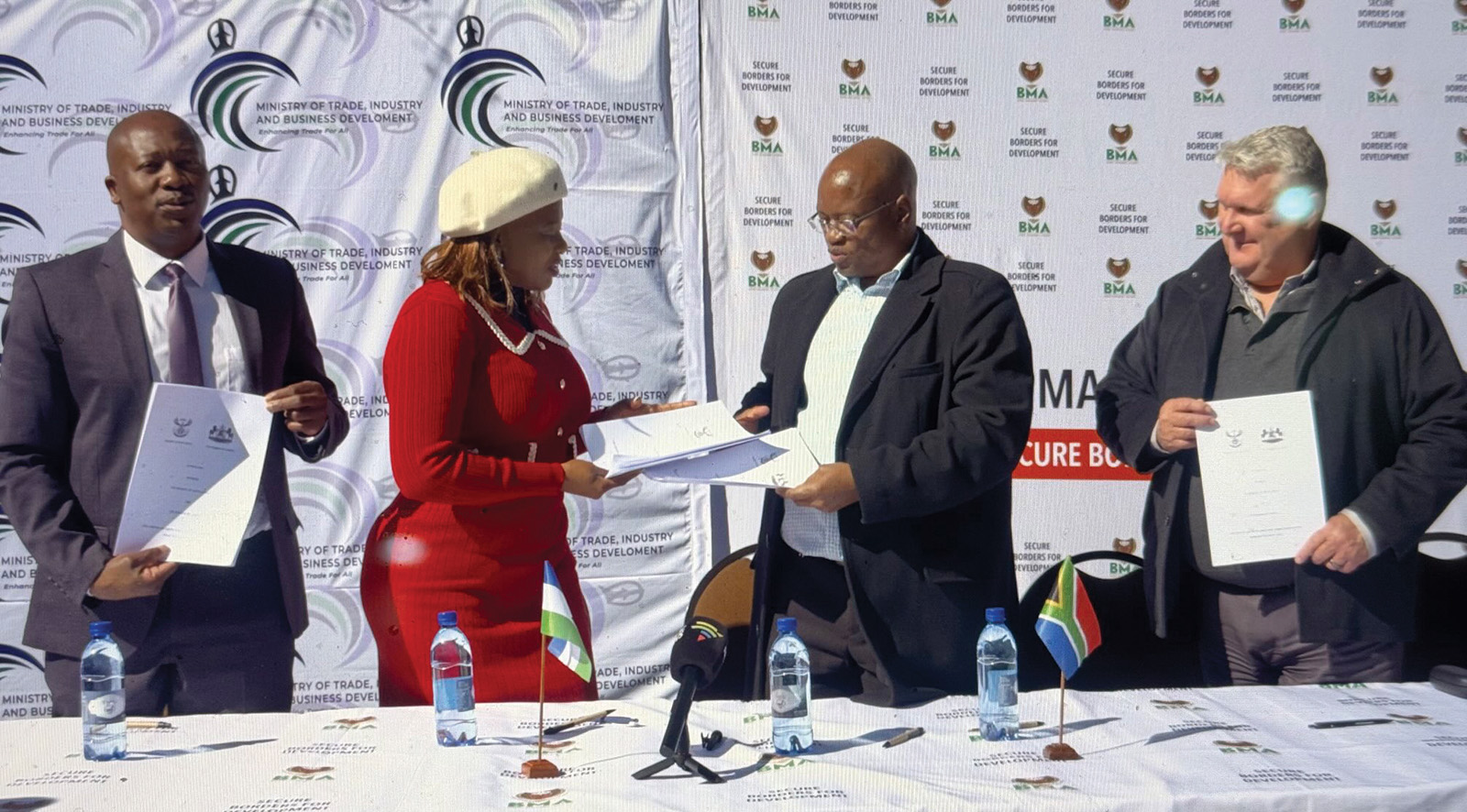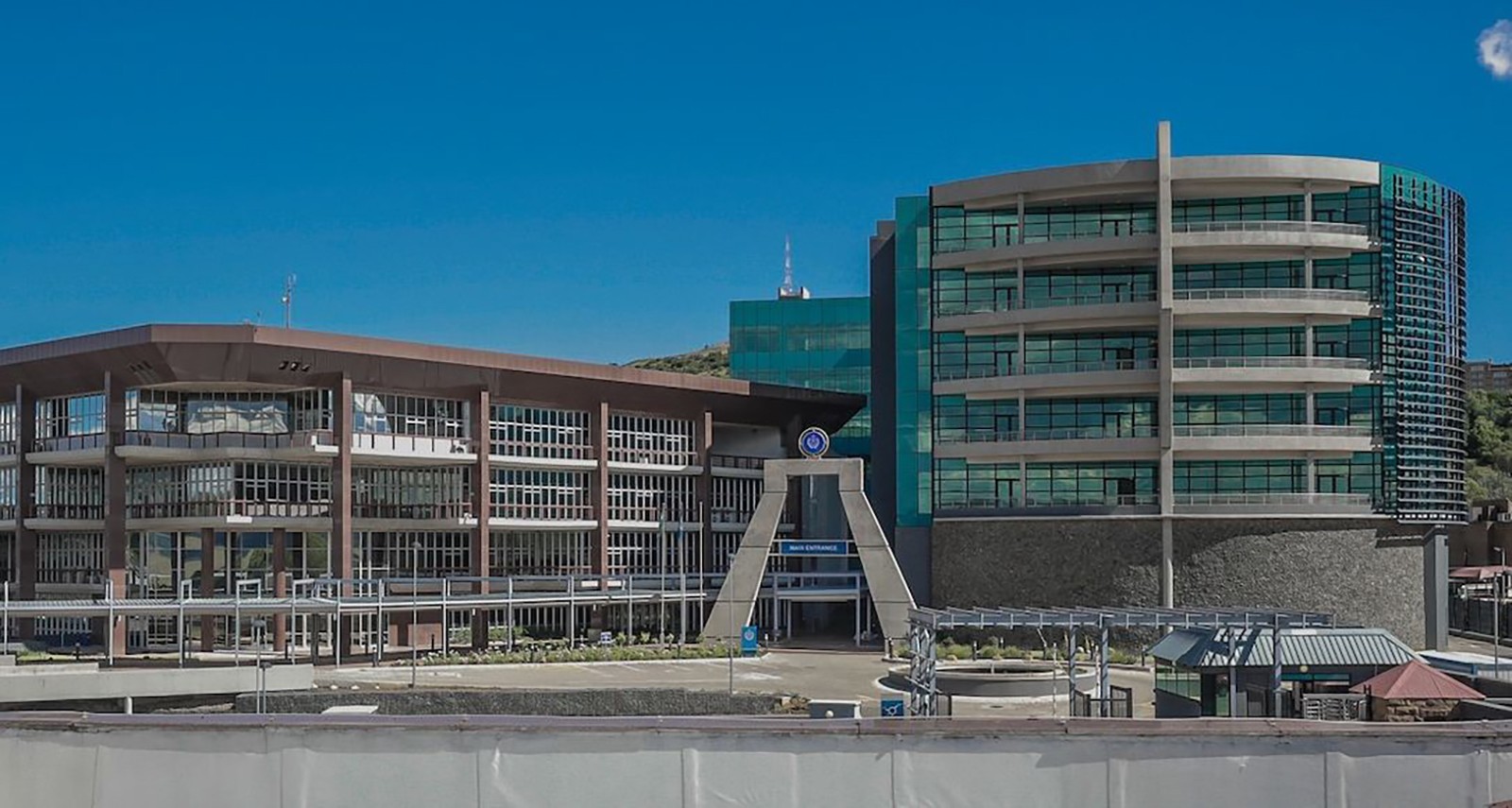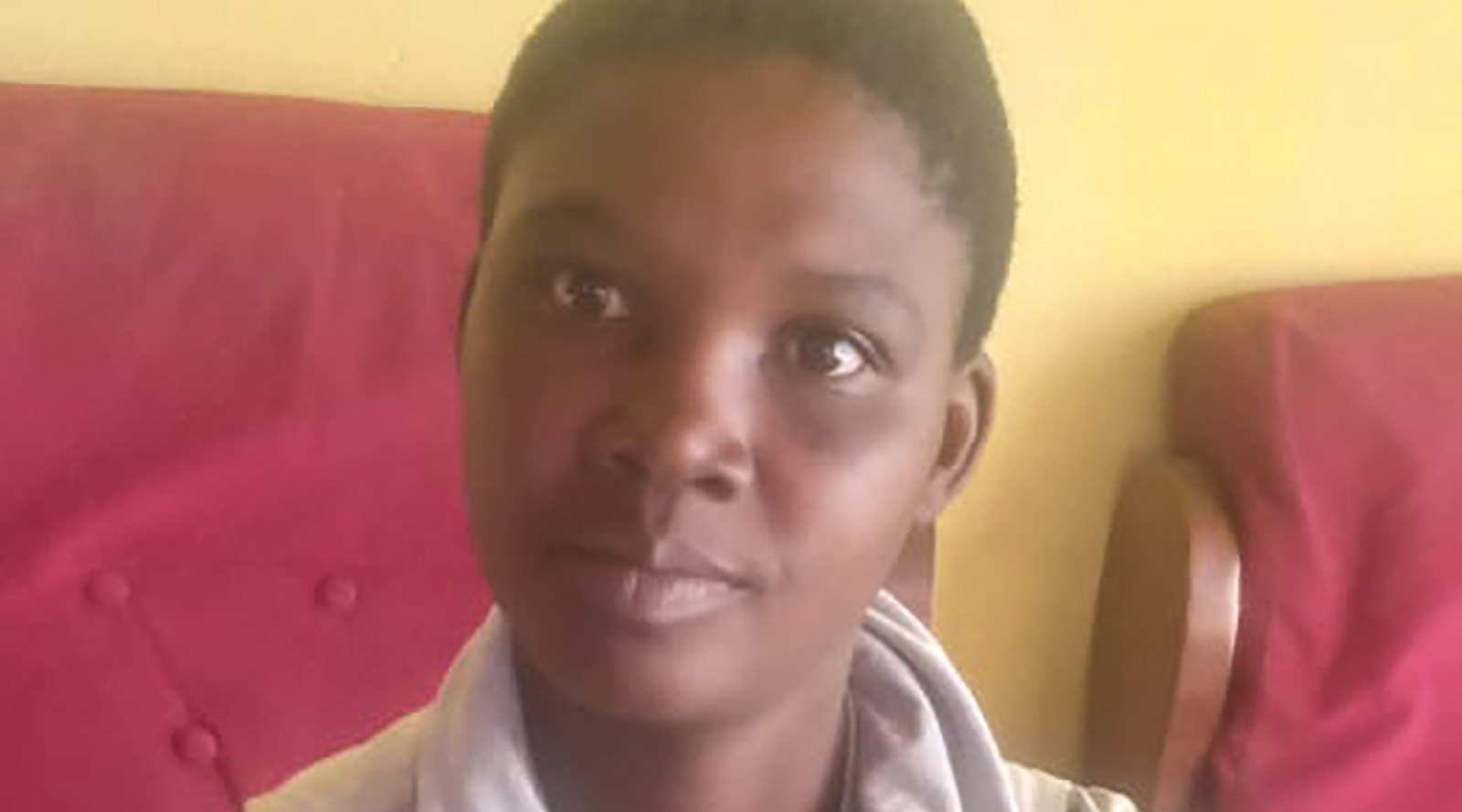Govt vows to tackle hunger crisis

SHARE THIS PAGE!
‘Mantšali Phakoana
The government has vowed to take decisive action in tackling hunger as food insecurity continues to affect thousands of Basotho.
The 2023/2024 Lesotho Vulnerability Assessment Committee (LVAC) report released in June last year revealed that an estimated 581,000 Basotho and 145,250 households faced food crises in the country.
Recognising the urgency of the matter, the government has put aside M100,104,160 to alleviate hunger.
The commitment was made by minister in the prime minister’s office, Limpho Tau in the National Assembly on Thursday last week.
Food insecurity in Lesotho remains challenging, with the recent hike in food and electricity prices only exacerbating the situation. This month, Lesotho Flour Mills increased the price of maize products by 15 percent.
On the other hand, the Lesotho Electricity Company has increased energy and maximum demand tariffs by 9.6286 percent, along with a 5.0 percent rise in the lifeline tariff.
This electricity hike comes as an additional financial strain due to the recent surge in petrol prices. The Petroleum Fund has also reported a substantial increase in fuel expenses, which comes after last month’s notch.
A Lesotho Bureau of Statistics report states that food costs in Lesotho also increased by 11.70 percent in January over the same month in the previous year.
These recent increases on the cost of the living and other more daily struggles in the country have left many citizens frustrated and overwhelmed.
The LVAC prepared by the Disaster Management Authority (DMA) reveals that factors such as drought, economic instability, and limited access to resources are the major contributors to food insecurity in the country.
As a way of responding to the growing threat of food insecurity in the country, Tau said the funds will benefit 180 000 Basotho who will be hired to work in temporary projects on infrastructural, environmental and protection of pastures. The workers will earn M500 each for two weeks.
In addition, he says, the government will have to step up its efforts by providing cash or food payments to vulnerable households as well as a food price subsidy on staple gain and pulses.
The strategy once worked successfully in 2016/2017 when the government allocated M226,000 for food price subsidy to address a similar challenge.
Tau says the government through the Bureau of Statistics under the ministry of finance has completed a crop forecast study.
“Due to the growing threat of food insecurity, the government commits to a range of initiatives aimed at addressing the food insecurity; from improving infrastructure to supporting local farmers. The government is taking a comprehensive approach to ensure the wellbeing of its citizens.
“The government has generated jobs that will commence next month and workers will earn M500 per two weeks. It is our belief that in this way, households will benefit directly from this money and it will improve their livelihoods and also assist them to buy seedlings.
“We also hope the money will boost local businesses and bring new business ideas within our communities, that would contribute to improving the economy of our country,” he noted.
The government’s move to alleviate hunger which is compounded by unemployment, has been welcomed by some community members while others believe the measure will only benefit a selected few.
The poor lament that the sudden spike in the cost of living has added to their financial burden.
‘Mapotsane Malataliana, a 76-year-old grandmother from Hleoheng Ha Motsarapane, who depends on a M950 pension grant to take care of four grand-children, shared her concerns about the increasing maize meal and electricity prices.
“Apart from the high food and electricity prices, there is also high school fees. I pay between M760 and M860 quarterly for my granddaughter who is now in grade 8, and life keeps getting harder for the poor. Nowadays, prices of everything are always rising. If we cannot afford to buy maize meal, our staple food, we are all dead because every household needs it.
“I am staying with my grandchildren and we depend on the M950 pension. With the way things are expensive, this money does not sustain us for the whole month. If I was the only one depending on it, that would be better.
“It is unusual that the maize meal prices increase when it is almost the harvesting season. We appreciate that the government has come up with strategies to tackle poverty but these prices should go down. It is sad to see some people go to sleep without anything to eat as they depend on buying maize meal and have no fields,” Malataliana said.
Twenty-four-year-old Mahlomola Ntjana says the strategy might benefit a certain group of people affiliated with the ruling political parties and not even half of the unemployed youth.
“Giving people a job that pays M500 fortnightly is not a sustainable solution to our problem now. If upon the completion of the project 180,000 people would have benefited, it means in a constituency of 1,000 unemployed people, only 2250 will benefit.
“Another issue is that the M500 that comes once is not enough to cover the costs of maize meal and other necessities like electricity. What is needed now is for the meal and electricity prices to be subsidised. For the less fortunate families, the strategy of providing them with a staple food is the only alternative that makes sense.
“Another issue that will always leave us lagging behind other countries is that of poor workers, from the textile factories, right up to the private sector and civil servants. The government needs to consider and review labour laws, so that at least every worker earns improved salaries. A salary has never been enough. Let’s face it, people in Lesotho are earning peanuts and no one is doing anything about it,” Leteketa noted.
He said the worst of the brunt of the high cost of living is felt in winter when people spend a lot on commodities like paraffin and electricity to warm up.
“The lives of poor people are getting harder by the day. The price hikes will affect Basotho negatively since paraffin and other essentials used by the less fortunate households have also gone up. The staple food of Basotho is now becoming expensive to the extent that some people cannot afford it.
“Prices are a burden on Basotho; even the small general dealers in villages also want to cover their transportation costs,” he indicated.
The hiking living cost has also bothered non-governmental organisations like SECTION 2 as well as churches that have since urged the government to prioritise the implementation of a food subsidy programme for Basotho.
In a recent statement, SECTION 2called upon the government to reaffirm and restore faith in the future of the nation.
“We firmly believe that implementing a food subsidy programme would offer much-needed relief to the hundreds of thousands of Basotho grappling with poverty, albeit belatedly.
“Despite the monumental challenges facing our national finances, providing affordable food to the impoverished masses would be a profound and welcomed relief, regardless of potential impacts on other sectors.
“We implore the government’s swift and decisive action on this matter, and we stand ready to support and collaborate with the government in any capacity necessary to alleviate the suffering of our fellow Basotho,” the organisation said.
“It is alarming that nearly half of our population (49.7 percent) lives below the food poverty line, with a troubling rural-urban divide exacerbating poverty distribution, affecting over 80 percent of the poor residing in rural areas,” it added.
The Christian Council of Lesotho (CCL)also urged the government to introduce subsidies after a surge in the cost of basic foodstuffs.
“Government needs to intervene through a subsidy on maize meal and other basic food commodities, that is what is due to happen when the nation in burdened by poverty,” CCL said partly in a statement released last month.
National University of Lesotho (NUL) lecturer in the Department of Economics, Lereko Teleko believes food subsidies are a short-term solution to the country’s problem.
He stressed that the country should grow more food rather than importing from South Africa in order to combat hunger and poverty.
According to a recent report from the Ministry of Agriculture, Food Security, and Nutrition, Lesotho imports 70 percent of its food from South Africa. Prime minister Sam Matekane said the country’s inability to produce food for its people tarnishes its image.
Teleko advised that while Lesotho farmers make efforts to produce locally, the government should invest more or mitigate the impact of climate change as it has proven to be a significant factor contributing to the rise in prices across the various sectors.
He added that the conflict between Russia and Ukraine is also another factor driving up food prices.
“The adverse impact of prolonged dry seasons has severely affected agriculture, not only in Lesotho but also in neighbouring South Africa that we heavily depend on,” he said, explaining that there has been a noticeable decline in crop production this year.
“We must consider that Russia is responsible for around 40 percent of grain production, so it’s natural for prices to rise when a major grain producer is involved in a war. Maybe this is a wakeup call for Basotho to produce enough for ourselves as well as for exportation,” he highlighted.
The World Food Programme (WFP)’s Lesotho Annual Country Report 2023, published on April 2, 2024, shows that Lesotho remains one of the most unequal countries globally. According to the report, of utmost concern are the children, where 65 percent are classified as multi-dimensionally poor, and over a quarter are orphans.


New border plan to advance regional trade
10 days ago
Foul language lands man in court
10 days ago
Youth demand action on unemployment
10 days ago
Ex-ministers threaten to sue govt
10 days ago
CBL launches LERIMA awareness campaign
10 days ago

Youth unemployment declared a state of emergency
12 days ago

Alliance extends deal with premier league teams
13 days ago